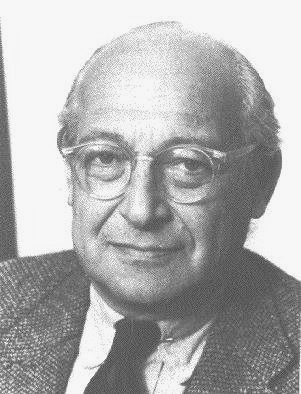| Profile | Major Works | Resources |
Walt Whitman Rostow, 1916-2003

Economic historian and articulator of a linear stages theory of economic development with his 1960 booklet, Stages of Economic Growth.
The son of Russian Jewish immigrants in New York, Walt Whitman Rostow obtained his Ph.D. at Yale in 1939 (with a stint as a Rhodes scholar at Oxford in between). Rostow subsequently served as an economics instructor at Columbia until the outbreak of the war. During WWII, Rostow served as an officer in the OSS (ancestral to the CIA) in Washington. He returned to academia after the war. After brief periods at Oxford in 1946 and Cambridge in 1949, Rostow became professor of economic history at MIT in 1950.
Outside of economics, W.W. Rostow became a political adviser to the US presidents John F. Kennedy and Lyndon B. Johnson. After serving as Kennedy's campaign strategist in 1960, Rostow became a state department official and later national security adviser during the Vietnam War, and was reputedly instrumental in increasing US military involvement there. He later taught at the University of Texas at Austin.
Rostow's 1960 linear stages theory of development argued that all developing countries must pass through five distinct stages: (1) "traditional society" (subsistence agriculture, next to no savings or investment), (2) "preconditions for take-off" (agriculture becomes mechanised, surpluses emerge, savings begin to grow to about 5% of GDP), (3) "take-off" (manufacturing grows, political institutions develop, savings rates increase to 10-to-15% of GDP); (4) "drive to maturity" (savings steady at 10-20%, growth spreads to other sectors, technological improvement, increasing diversity), (5) "age of mass consumption" (output driven by consumption, beginning of shift to tertiary sector). Rostow envisaged the length could take forty to sixty years from take-off to maturity. The theory was criticized for its "one-size-fits-all" approach - and in particular, the centrality of savings, which was not always evident at the rates Rostow assumes and for overlooking the importance international trade and competition.
|
Major Works of Walt Whitman Rostow
|
|
HET
|
|
Resources on W.W. Rostow
|
All rights reserved, Gonšalo L. Fonseca
